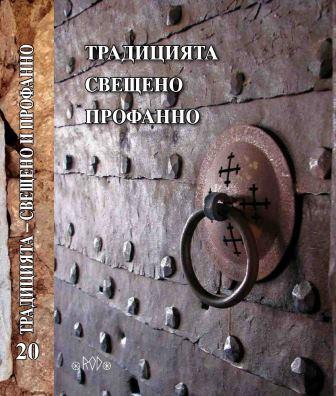
We kindly inform you that, as long as the subject affiliation of our 300.000+ articles is in progress, you might get unsufficient or no results on your third level or second level search. In this case, please broaden your search criteria.

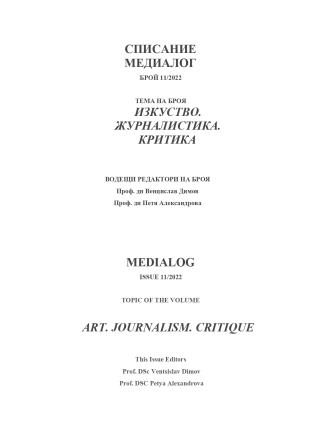
The edited volume 'The Question of Justice. The Prosecuted Journalists in Bulgaria' (University Press 'St. Kliment Ohridski', 2022) with interviews, articles and commentaries, edited by Prof. Snezhana Popova and Assoc. Prof. Zhana Popova, is a valuable contemporary chronicle that fits into the history of Bulgarian media and journalism.
More...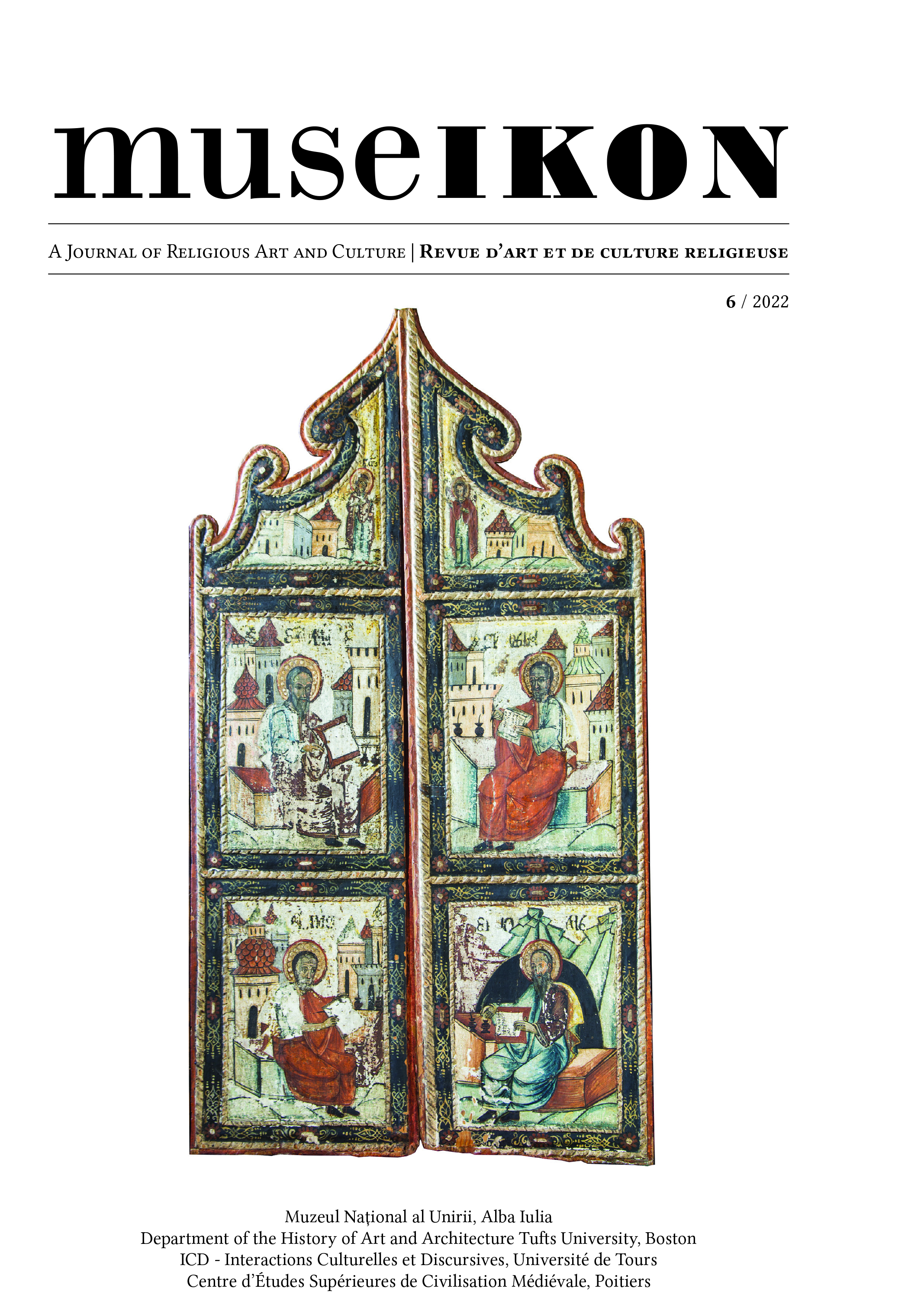
This study identified the icon of Virgin Moscovita and the icon of the Holy Mandylion, described in Konstantinos Dapontes’ writings, with the icon of the Virgin and the icon of the Holy Mandylion preserved in his family monastery Evangelistria in Skopelos island. We can now retrace the “biography” of these two artefacts, the history of their creation, donation, and multiple “transfers” of the two icons. This study is an important contribution to the history of the early modern period in the Balkans. The icon of the Virgin Moscovite was donated to Konstantinos Dapontes by his benefactor Konstantinos Mavrocordatos in 1741 in Iasi, and the the icon of the Holy Mandylion was donated to Dapontes by his “maître spirituel”, the patriarch of Antioch Sylvester in 1762.
More...
Au cours de la première moitié du xviiie siècle, les réformes de l’Église Orthodoxe Serbe de Hongrie se reflètent aussi dans la peinture des églises. L’établissement de liens étroits avec le Patriarcat de Moscou et la Laure des Grottes de Kyïv-Petchersk a augmenté l’influence russo-ukrainienne dans le siège métropolitain de Karlovci. On constate un éloignement de plus en plus prononcé face à l’iconographie traditionnelle et une ac-ceptation des reformes connues dans la peinture baroque ukrainienne. Le moment décisif est représenté par l’arrivée du peintre ukrainien Jov Vasilijevič en 1742. Avec le soutien du patriarche Arsenije iv, Vasilijevič fonde une école de peinture à Sremski Karlovci. Par décision du patriarche, cette école devient obligatoire pour tous les peintres d’icônes du siège métropolitain. Un décret scelle l’entrée des nouvelles modes d’expression artis-tique dans l’art ecclésiastique. Jov Vasilijevič exécute plusieurs oeuvres importantes. Il peint les iconostases des monastères de Krušedol et Bodjani; il réalise des peintures pour le patriarche; il forme plusieurs élèves qui con-tinueront à répandre cette influence de la peinture baroque ukrainienne. L’article se propose d’étudier ce style de peinture, devenu une véritable norme dans l’art religieux du siège métropolitain de Karlovci dans les années 1740-1770.
More...
Cette publication examine quatre icônes, qui peuvent être comparées à la production artistique d’un atelier de peinture d’icônes conventionnellement nommé « Belz-Drohobych ». Cet atelier de la Galice ukrainienne – dont la localisation géographique demeure toutefois difficile à établir – se démarque par son style artistique particulier: un ‘laconisme’ graphique rigoureux, à la fois imagier et décoratif. Ses oeuvres les plus représentatives proviennent de la ville de Belz et de la ville de Drohobych, des villages de Hrushiv et Kulchytsi (région de Lviv). Les icônes ici étudiées proviennent, en revanche, du territoire de la région roumaine de Mara-mureș. Il s’agit des icônes de Sainte Paraskevi et de l’Archange Michel du village de Budești-Susani, de l’icône de Saint Jean-Baptiste du village de Breb, et de celle de Sainte Paraskevi (probablement du Maramureș), réalisée par un certain Maître Toma. Pour la première fois, toutes ces oeuvres sont actuellement en cours de restauration. Un bref état de l’art de la recherche les concernant précède l’analyse comparative proprement-dite. Ce qui ressort de cette analyse c’est que, sur la base de l’iconographie et de la stylistique, les quatre icônes du Maramureș s’avè-rent assez proches des icônes de « Belz-Drohobych ». Cela permet de proposer une datation des icônes de Sainte Paraskevi et de Saint Jean Prodrome dans la seconde moitié du xve siècle. En ce qui concerne l’icône de l’Archange Michel, les auteurs proposent une datation au xvie siècle. Cependant, l’icône nécessiterait une étude ultérieure après sa restauration. Enfin, l’icône de Sainte Paraskevi, réalisée par Maître Toma, semble bien s’inspirer des oeuvres de l’atelier « Belz-Drohobych », mais d’un point de vue stylistique, elle se réfère à une période ultérieure: fin du xvie siècle-début du xviie siècle.
More...
‘After preaching, they feasted quite lavishly every day, they chose new lovers almost every night, they spent their time without being subjected to anyone, without worries, without fatigue, without danger’. In his Super Apocalypsim, the Cistercian monk Geoffrey of Auxerre describes in this way two Waldensian lady preachers, delineating an extraordinary condition of female autonomy. The article explores the ‘textual phy-siognomy’ of Super Apocalypsim, a biblical commentary written in the second half of the 1180s, but also high-lights its historical and editorial context. The testimony of Geoffrey of Auxerre, a leading representative of ecclesiastical hierarchies, allows us to analyse lexical choices and conceptual nuclei in order to clarify the speci-fic polemics underlying this description of the subversive life of an order which is represented by the two Waldensian women and the manner in which they experience female freedom. Emphasis is given to the issue of a dangerous ‘upside-down world’ (mundus reversus et perversus); this witnesses the subversive experience of the two Waldensian women. The article also recognises possible surviving traces of a radical evangelism and the attempt to create a new world (mundus novus).
More...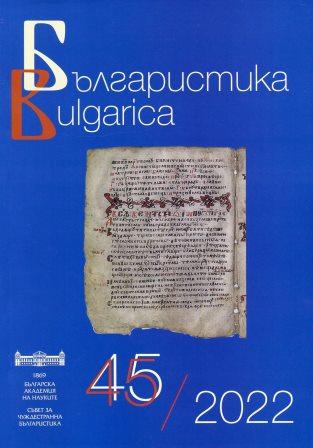
Selected bibliography in the field of Bulgarian Studies published in the current year.
More...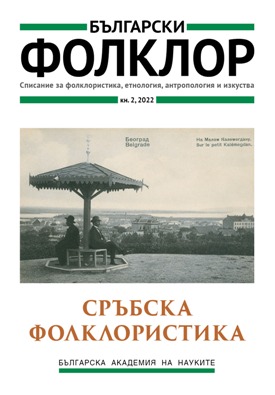
This paper analyses the attitude of Bulgarian researchers towards the phenomenon of bugarštica, with special reference to the book “Croatian Bugarštica Songs and Their Bulgarian Counterparts. Studies and Texts”, edited by Stefana Stoykova and published in 2015 by the Bulgarian Academy of Sciences and the Institute of Ethnology and Folklore Studies with Ethnographic Museum. Stefana Stoykova substantiates the thesis about the Bulgarian origin of the bugarštica, present in the research spanning from Ivan Shishmanov to Antonina Afanasieva-Koleva, by analysing Bulgarian recordings from the 20th century in which, according to Stoykova, traces of bugarštica singing still remain preserved. By analysing the formula “orao se vijaše” [an eagle hovered] and the conceptualization of the falcon figure (in metaphors, as a mythical mediator between the worlds, etc.) in oral lyrical poetry in South Slavic context, this paper uncovers the consonance between bugarštica singing and other genre patterns from the 15th until the 20th century primarily in shared formulas, in style and language, in archaic mythological symbolism. The commonness of these elements is attributed to cohabitation, frequent migrations and the broadest processes of creation and duration in oral epic and lyrical traditions in South Slavic cultures.
More...
This paper explores the position of the rebellious, disobedient hero in his own environment on the examples of South Slavic and Russian epics; more precisely, it explores the hero’s disobedience to an authority from his social or family domain. There is a collision between the heroic status of the hero, emphasizing disobedience, independence and pride, with his social and family status, which lowers the hero on the hierarchical ladder. The hero opposes the will of his superior and sometimes explicitly shows his defiance through special gestures, specific gait or riding, often in the same way as his enemy, but unlike the enemy’s, his arrogance and daring are not always punished. An insubordinate hero is not a frequent type, although often a young hero and a neophyte. Besides, disobedience is not reserved for one and the same characters, although the most disobedient heroes are the greatest Russian hero Ilja Muromec and the greatest South Slavic hero Marko Kraljević. Disobedience is only partially a means of the heroes’ characterization, it is mainly used as a motivation, as an element of the commencement that, through the initial collision, opens the possibility for different variants of the plot, in which, in most poems, the epic prevails over the balladic resolution, the heroism over the punishment for hybris, the heroic over the magical principle.
More...
Phenomena defined in contemporary folkloristics as postfolklore, small groups folklore, urban folklore have for long been out of the focus of Serbian folkloristics, and papers on this topic have only recently started appearing. Quite understandably, the studies are directed towards contemporary material. However, the diachronic aspect of these phenomena exists too. The testimonies of the existence of such forms of folklore in the past can be found in memoir and diary literature, as well as in the corpus of historical (not folkloristic) archives. All these past phenomena are covered here with the umbrella term “other folklore” whose function is descriptive, not theoretical. Everything that folkloristic paradigms in the past failed to see as a “real” folklore (equated with oral, rural, and traditional) – making that material invisible and hidden in the sources less used by folklorists – is classified here as “other.” “Other folklore” in this case encompasses a few kinds of folklore: folklore of small groups (criminals and prisoners, students, seminarists) and urban folklore (mostly connected to Belgrade). Political folklore could belong here too. It is often close to traditional genres in its forms, but historical and political conditions have made it unsuitable and evicted it to the out-of-sight memory of memoirs and diaries (such are, say, monarchist songs from World War II, or political jokes from the time of Communism). Political folklore sometimes coincides with other “otherness” categories, say, the parodic urban folklore from the time of the Nazi occupation of Belgrade that is an example both of political and urban creativity; humoristic and unheroic, it did not fit the folklore of resistance ideal even upon the end of the war. Such a corpus approach makes it possible to see the diachronic background of many contemporary examples and discover new sources of folklore in the less examined material. More importantly, the definitions of folklore themselves are tested by this approach (surely, along the lines of Popper’s criticism of “facts,” it is definitely not a “discovery,” but a re-evaluation of concepts before approaching the corpus). Finally, such analyses can be useful to historians too, because they reveal the hidden side of certain epochs and their mind-sets, as well as the genre conditionality of historical sources.
More...
The Ethnographic Collection, today a part of SASA Archives, was initiated by Stojan Novaković in order to continue Vuk Karadžić’s work on collecting folklore. The goal of the Academy was to get the material collected, systematized and published, and the task of collecting was entrusted to individuals, such as teachers and priests, who lived among the people and were literate enough to record various forms of folklore. The questionnaires they used were intended for ethnographic and anthropogeographic research, which means that there were no clear instructions for recording folk tales. In this paper, I use the term textualization (after Lauri Honko), defined here as secondary, because it refers to the representation of the written (rather than spontaneous oral) text, in order to point out different models/strategies of recording folk tales used by collectors in the last decades of the 19th and first decades of the 20th century. Depending on their position, recording of the folklore material was sometimes influenced by ethnography or dialectology, considering that the mentioned disciplines were on their rise, while the literary model appears as a regional distinction.
More...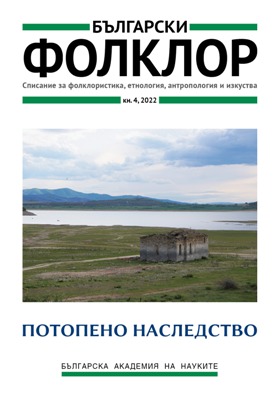
I explore the connections between a particular place that was created by a natural agent (the Yantra River) and an artificial object (the ‘buna’), and the activities by which local people gave the place a specific character. I highlight their past actions and experiences; remembering, recounting and evaluations in the present; the emotional attachment to the place and the ecological nostalgia after its ‘loss’ due to hydro technical intervention.
More...
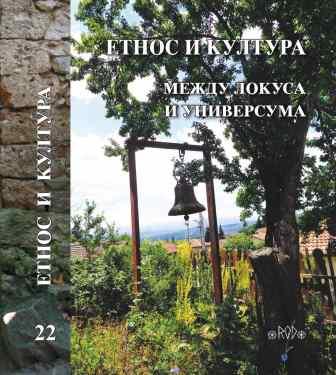
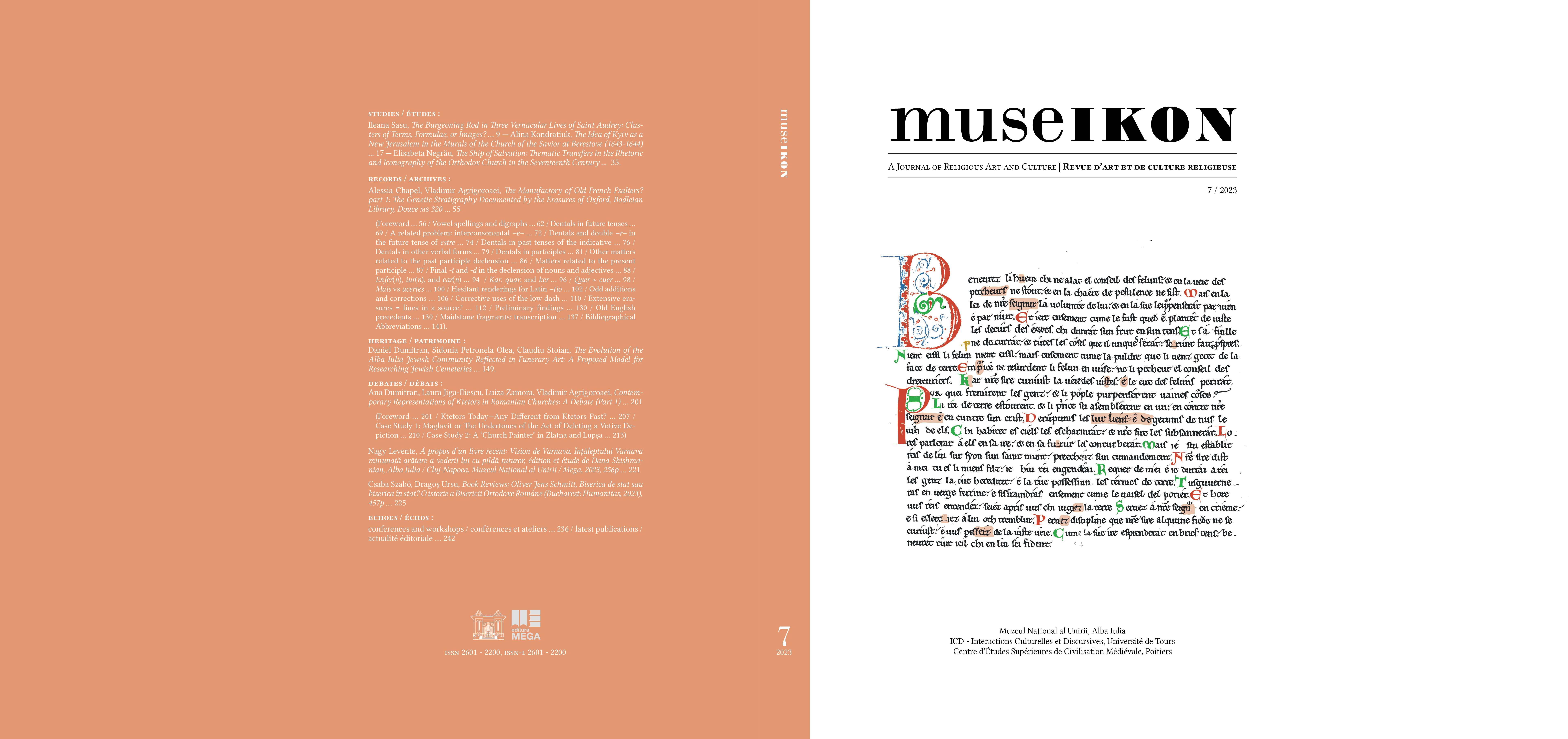
Plecând de la o scenă reprezentând Corabia creştinătăţii atacată de duşmanii credinţei, pictată în pridvorul bisericii din cimitirul mănăstirii Hurezi (1699), articolul urmăreşte dezvoltarea temei teologice şi iconografice a Bisericii ca Navă şi cercetează sursele pentru această reprezentare din biserica amintită. În scrierile patristice şi în iconografia bizantină şi medievală occidentală, tema ia forme specific confesionale (arca Petri sau barca Petri, în mediul catolic). În secolul al XVI-lea, pe fondul conflictului confesional catolico-protestant, polemicile încep să dea naştere unor imagini satirice ale unor lupte între două vase pe mare, ilustrând alegoric înfruntările dintre cele două puncte de vedere. Exprimate plastic prin tehnica gravurii, aceste imagini sunt o creaţie a mediului protestant german. În timp ce Contrareforma continuă să folosească motivul alegoric al vasului navigând pe mare ca reprezentare a Bisericii Catolice triumfătoare, mediul protestant dezvoltă o iconografie a Bisericii ca navă asediată pe mare de diverse categorii de duşmani: biserica papală, ereziarhi, evrei şi musulmani, personaje infame ale Apocalipsei. Tipărituri cu astfel de reprezentări ajung şi în estul Europei, inclusiv în mediul Lavrei Pecherska din Kyiv, care folosea surse vizuale germane pentru atelierul său de litografie. Pictorii, gravorii şi desenatorii ucraineni din a doua jumătate a secolului al XVII-lea preiau acest motiv, îl instrumetalizează ca alegorie a Bisericii Ortodoxe asediate şi îl exportă în spaţiile învecinate, în Valahia şi Rusia. Motivul pătrunde în paralel, tot la jumătatea secolului al XVII-lea, şi în lumea grecească, pe canale catolice. Mediul grecesc al Muntelui Athos, prin Nicodim Haghioritul, îl va include ca ilustraţie a Pidalionului (culegere de canoane), la sfârşitul secolului al XVIII-lea.
More...
The Histories and Film Festival in Râşnov (FFIR—Festiva-lul de Film și Istorii la Râşnov) held its fifteenth edition from 18 to 27 August 2023. ‘Radicalisation’ was the main theme of the festival, namely the fact that “our society seems less and less open to balanced dialogue; everyone defends and imposes their own truth and nuances dis-appear.” Museikon organised a debate on the topic ‘Con-temporary votive depictions—from Stephen the Great to the ktetors of our days’ (Tablouri votive contemporane – de la Ștefan cel Mare la ctitorii de azi) in the Old Church of Râşnov (dedicated to Saint Nicholas), on Wednesday 23 August 2023.
More...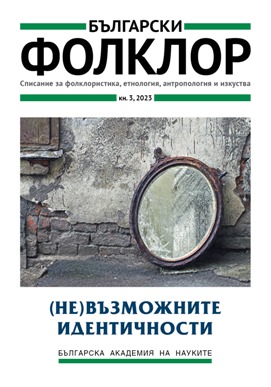
The article examines the funeral and memorial rites in the village of Breznitsa, Gocedelchev region. The specific local manifestations of the practices studied are presented in comparison with those of the other Muslim communities. Various elements of this rite are described both as prescriptions in the Koran and the Hadiths, and as the narrative tradition of the Bulgarian Muslims. The analysis of the connections between written and oral traditions shows the presence of an untransformed, ancient layer which continues to exist in parallel with the precepts of traditional Sunni Islam, characteristic of Ottoman culture. The field data used is gathered by the author in the period 2021–2023.
More...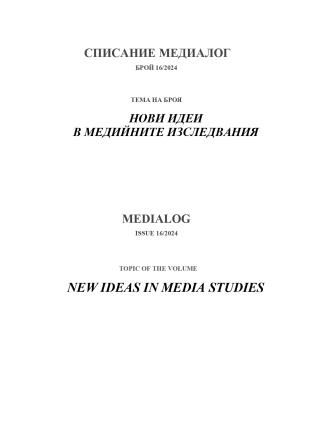
The text offers an analytical look at self-presentation as an element of dialogue in five American audio podcasts about cinema, aiming to outline recurring motifs to highlight some of the ways in which the podcast medium has been adapted to and shaped creatively. The analysis of the observed podcasts shows that the dialogue in them is marked by a play with forms and communicative roles.
More...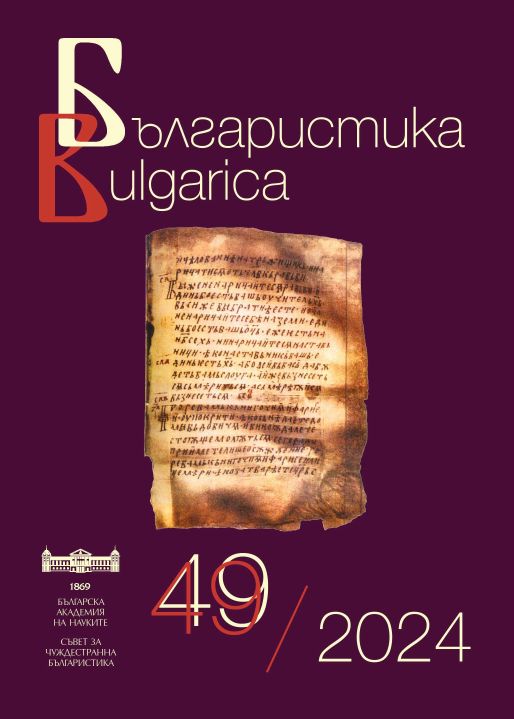
Content of the main Bulgarian scientific journals for the current year in linguistics, literature, history, folklore, ethnography, archaeology and art studies.
More...